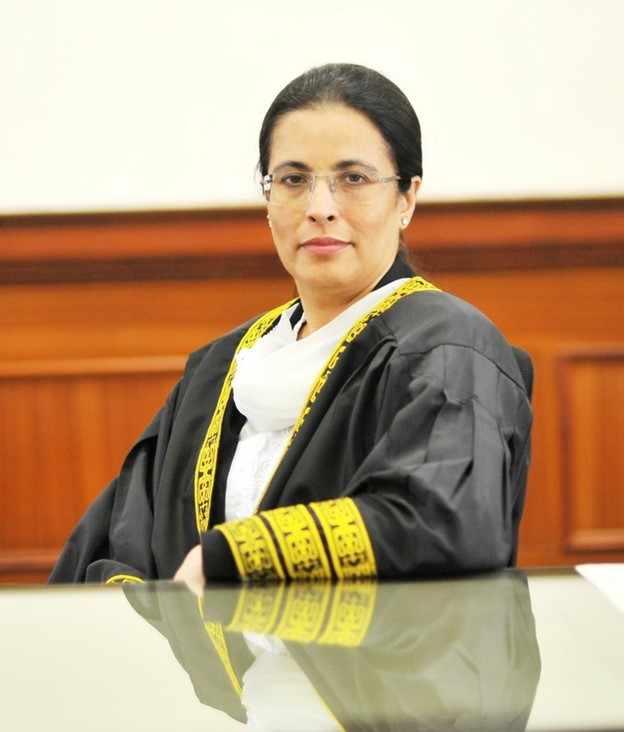A Conversation with Mrs. Justice Ayesha A. Malik of the Supreme Court of Pakistan, chaired by Prof. Mindy Chen-Wishart, Dean of the Faculty of Law, University of Oxford
You are invited to a Zoom meeting.
Jun 6, 2022 01:00 PM London
Register here in advance for this meeting
Mrs. Justice Ayesha A. Malik of the Supreme Court of Pakistan

Mrs. Justice Ayesha A. Malik, before her elevation to the Supreme Court, was serving as a Justice of the Lahore High Court since March 2012.
Born in June 1966, her primary education was completed from schools in Paris, New York and London. She acquired her B. Com from the Government College of Commerce & Economics, Karachi and her LLB from the Pakistan College of Law, Lahore. She went on to do an LLM from Harvard Law School where she was named a Landon H. Gammon Fellow for academic excellence.
Justice Malik started her legal career working at Fakhruddin G. Ebrahim & Co and ultimately went on to become a Partner at Rizvi, Isa, Afridi & Angell (‘RIAA’), where she spearheaded the corporate & litigation department at the firm’s Lahore office. She has been a Lecturer in Banking Law (University of the Punjab) and Mercantile Law (College of Accounting and & Management Sciences, Karachi). She has also volunteered her time to the Hermann Gmeiner School, Lahore, an SOS project, teaching both English Language and Development in Communication Skills. She has also worked, pro bono, for various NGOs and has focused specifically on poverty alleviation programs, micro-finance programs and skills training programs.
Some of her judgments include those on the enforcement of international arbitration in Pakistan, declaration of assets in general elections and interpreting the relationship between federal and provincial governments under the scheme of the Constitution with reference to inter-provincial trade. So far as matters pertaining to women are concerned, these include declaration of the two-finger virginity test and hymen examination of rape victims as unconstitutional and violative of human dignity, and the declaration that policies promoting and facilitating women’s employment in Punjab were not discriminatory but were based on affirmative action. Justice Malik has always upheld merit as being the relevant criterion for admission in medical colleges as well as in employment issues in cases filed by women who have topped the merit and yet were denied admission or employment as on the basis of a gender quota.

